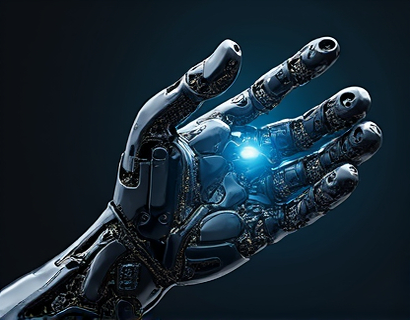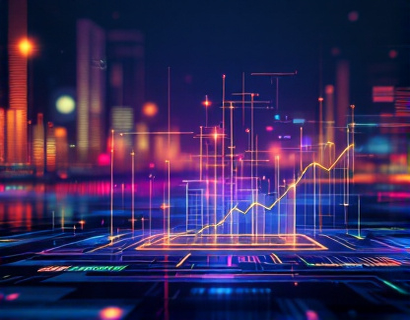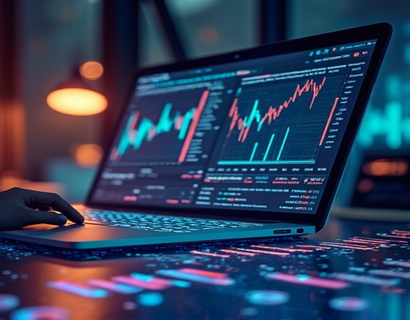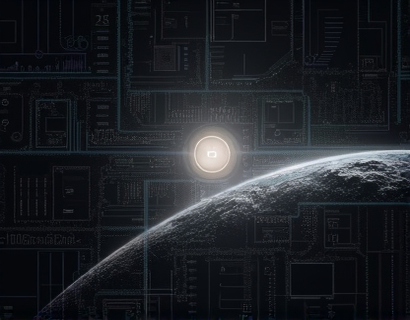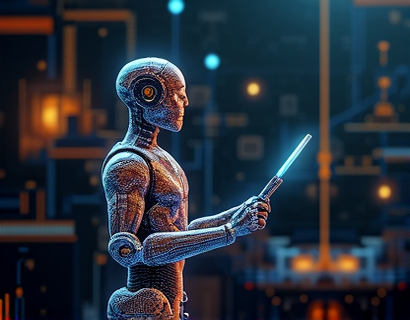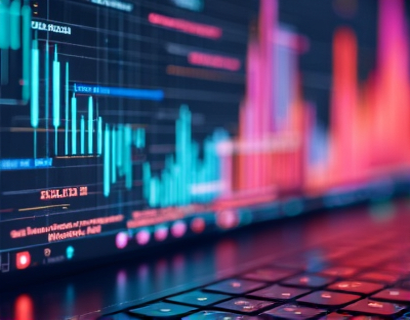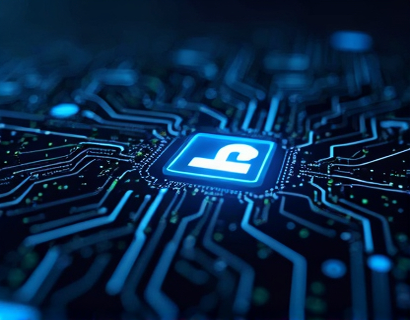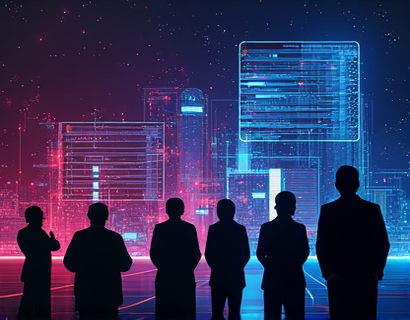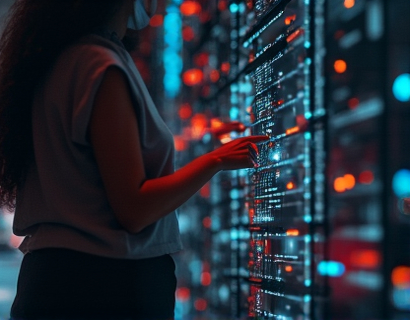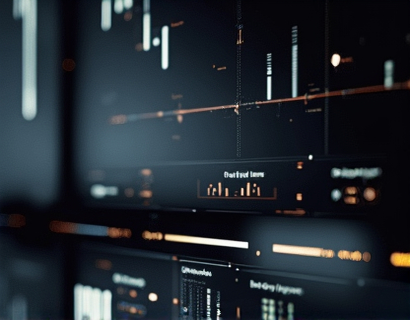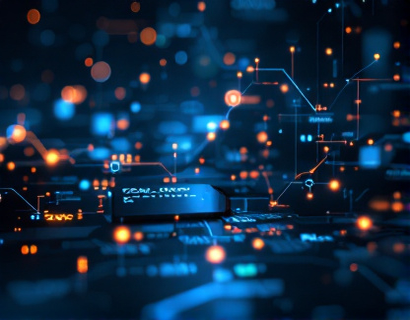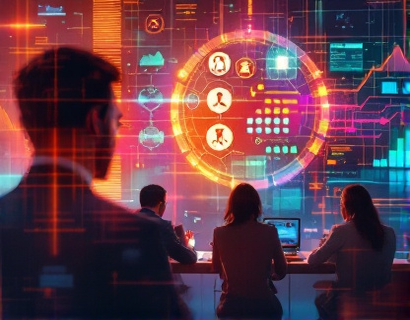Transforming Digital Experiences: The Synergy of Crypto and AI
The digital landscape is undergoing a profound transformation, driven by the powerful convergence of blockchain technology and artificial intelligence. This synergy is not just a trend but a fundamental shift that is redefining how we interact with apps and services online. For tech innovators and early adopters, understanding this convergence is crucial to staying ahead in the digital age. This article delves into the transformative potential of blockchain and AI, exploring how these advanced technologies can enhance connectivity and elevate online presence, providing a comprehensive roadmap to unprecedented digital success.
Understanding Blockchain and AI
Blockchain technology, at its core, is a decentralized ledger that ensures transparency, security, and immutability. It underpins cryptocurrencies like Bitcoin and Ethereum, but its applications extend far beyond digital currencies. AI, on the other hand, involves the simulation of human intelligence processes by machines, particularly computer systems. These processes include learning (the acquisition of information and rules for using it), reasoning (using rules to reach approximate or definite conclusions), and self-correction. When combined, blockchain and AI create a powerful toolkit for innovators.
The Convergence of Blockchain and AI
The integration of blockchain and AI is revolutionizing various sectors, from finance and healthcare to supply chain and entertainment. This convergence leverages the strengths of both technologies: blockchain's security and transparency, and AI's ability to process and analyze vast amounts of data. The result is a more robust, efficient, and secure digital ecosystem.
One of the key areas where this synergy shines is in data management. Blockchain provides a secure and tamper-proof way to store and share data, while AI can process and derive insights from this data in real-time. For instance, in the healthcare sector, patient data can be securely stored on a blockchain, ensuring privacy and integrity, while AI algorithms can analyze this data to predict health trends, personalize treatments, and improve patient outcomes.
Enhancing App Interactions
The convergence of blockchain and AI is transforming app interactions by creating more intuitive, secure, and personalized user experiences. Traditional apps often rely on centralized servers, making them vulnerable to hacking and data breaches. By using blockchain, apps can distribute data across a network of nodes, reducing the risk of a single point of failure. AI, meanwhile, can enhance user interactions by providing personalized content, predictive analytics, and automated customer support.
For example, a blockchain-based social media app can use AI to curate content based on user preferences while ensuring that user data is securely stored and managed. This not only improves user engagement but also builds trust, as users know their data is protected.
Driving Growth and Engagement
The combination of blockchain and AI is not just about enhancing existing apps; it's about creating new paradigms for digital engagement. By leveraging these technologies, businesses can build ecosystems that are more resilient, transparent, and user-centric. This, in turn, drives growth and engagement in the digital age.
One innovative approach is the use of decentralized applications (dApps) powered by blockchain and AI. dApps can offer users more control over their data and interactions, leading to higher satisfaction and loyalty. For instance, a decentralized gaming platform can use AI to create dynamic game environments and NFTs (non-fungible tokens) to represent in-game assets, ensuring uniqueness and ownership. This not only enhances the gaming experience but also opens up new revenue streams through the sale and trading of these digital assets.
Security and Trust
Security and trust are paramount in the digital world, and the combination of blockchain and AI addresses these concerns effectively. Blockchain's decentralized nature makes it inherently secure, as there is no single point of failure. AI, with its advanced analytics and machine learning capabilities, can detect and mitigate threats in real-time, further enhancing security.
Moreover, the transparency provided by blockchain ensures that all transactions and interactions are visible and verifiable. This level of transparency builds trust among users, which is crucial for the adoption and success of any digital platform. For instance, in the financial sector, blockchain-based trading platforms can use AI to monitor transactions for fraudulent activity, ensuring a secure and trustworthy environment for users.
Supply Chain Optimization
Another significant area where blockchain and AI are making a difference is supply chain management. The convergence of these technologies can lead to more transparent, efficient, and secure supply chains. By using blockchain to track the movement of goods and AI to analyze this data, businesses can gain real-time insights into their supply chains, identify bottlenecks, and optimize operations.
For example, a global retailer can use blockchain to trace the origin and journey of products from manufacturers to stores. AI algorithms can analyze this data to predict demand, optimize inventory levels, and reduce waste. This not only improves operational efficiency but also enhances customer satisfaction by ensuring products are available when and where they are needed.
Personalized Marketing and Customer Experience
The integration of blockchain and AI is also transforming marketing strategies and customer experiences. Traditional marketing often relies on broad, generalized approaches, but blockchain and AI enable a more personalized and targeted approach. By securely storing and managing user data on a blockchain, businesses can ensure data privacy while using AI to analyze this data and create highly personalized marketing campaigns.
For instance, an e-commerce platform can use blockchain to store customer preferences and purchase history securely. AI can then use this data to recommend products, send personalized promotions, and provide a tailored shopping experience. This not only increases customer engagement but also drives sales and customer loyalty.
Challenges and Considerations
While the potential of blockchain and AI is vast, there are challenges and considerations that innovators must address. One of the primary challenges is the technical complexity of integrating these technologies. Developers need to have a solid understanding of both blockchain and AI to build effective solutions. Additionally, the regulatory landscape for blockchain and cryptocurrency is still evolving, and businesses must navigate these regulations carefully to avoid compliance issues.
Another consideration is the scalability of blockchain networks. While blockchain offers many benefits, it can be slow and resource-intensive, especially for large-scale applications. However, advancements in blockchain technology, such as layer 2 solutions and decentralized finance (DeFi) protocols, are addressing these scalability issues. AI, with its ability to optimize processes and reduce computational costs, can also play a role in making blockchain more efficient.
The Future of Digital Experiences
The future of digital experiences is being shaped by the synergy of blockchain and AI. As these technologies continue to evolve, we can expect even more innovative applications and use cases. The key for tech innovators and early adopters is to stay informed, embrace these technologies, and explore how they can be leveraged to create value and drive growth.
In conclusion, the convergence of blockchain and AI is not just a technological trend but a fundamental shift in how we build and interact with digital ecosystems. By enhancing security, transparency, and personalization, these technologies are paving the way for a more connected, efficient, and user-centric digital world. For those ready to embrace this transformation, the opportunities are vast and the potential for success is immense.




